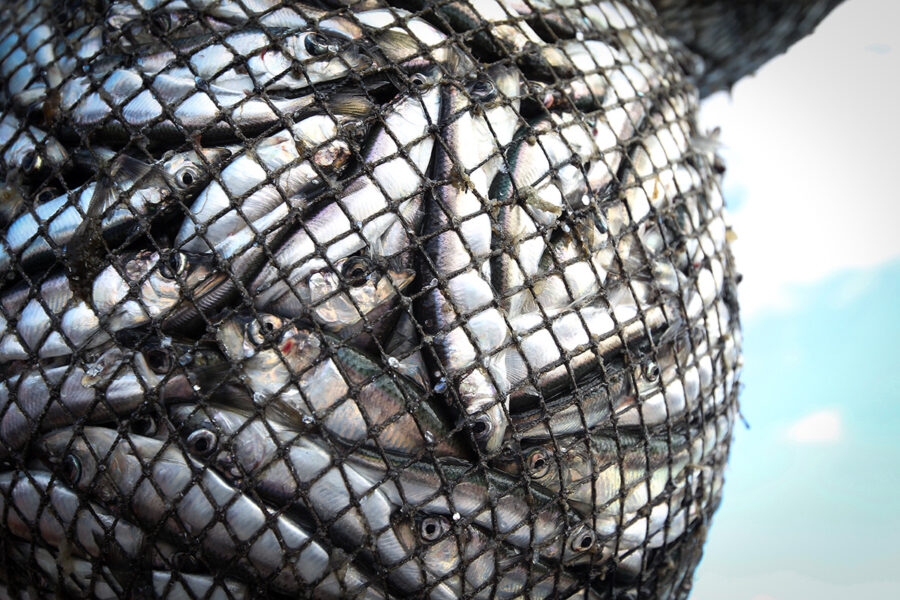Brexit has added ‘considerable’ burdens for Scottish seafood traders, and while trade with the EU is manageable, it is ‘sub-optimal’ at present, according to Seafood Scotland.
It says there are a number of additional trade barriers which hampered trade ‘significantly’ in the early stages and which still create costs and challenges for the sector, although they have reduced over time.
Additional certification and documentation have added ‘a considerable time and cost burden for Scottish seafood traders’.
In a briefing paper to the Scottish parliament’s Constitution, Europe, External Affairs and Culture Committee, which is reviewing the EU-UK Trade and Co-operation Agreement (TCA), Seafood Scotland says the Scottish seafood sector has ‘worked very hard’ to adapt to the new trading relationship. But despite these efforts, trade with the EU is ‘merely standing still’ rather than growing or improving from the position before Brexit.
“Any UK-EU agreements to further reduce trade-related bureaucracy would be welcomes, as would efforts and initiatives on the UK side to bring forward programmes to digitise and streamline trade/ border systems and processes (e.g. the single trade window and electronic environmental health certificates),” Seafood Scotland told the committee.
It also wants a new agreement on sanitary and phytosanitary (SPS) measures, greater sharing of information, co-operation and close working between officials across jurisdictions, and more alignment and integration between IT systems to support simpler and easier trade.
“The adoption of ‘light touch’ and risk-based surveillance, inspection and enforcement, as well as reduced certification requirements, would also help to minimise costs and challenges for traders from the rest of the UK if the terms and principles of the Windsor Framework, applicable to Northern Ireland, were extended to the wider UK-EU relationship,” said Seafood Scotland.
Stressing the importance of trade with the EU, it says access to EU markets is ‘critical’ to the seafood industry in Scotland. Seven out of the top 10 export markets for Scottish seafood are EU member states, accounting for 70% of Scottish seafood exports by value.
“Customs and SPS checks required under the TCA are matters of considerable concern given their potential to cause delays at ports/ borders/points of entry to the EU market. Delays can be very damaging, leading to goods being delivered late to customers and/or spoiling of fresh/live products,” it said.
It is also vital that seafood is delivered ‘in as pristine a condition as possible, as swiftly as possible’. Delays reduce the prices that can be achieved, and ‘can ultimately undermine the profitability and, in some cases, viability’ of the sector – particularly in Scotland, which has a higher proportion of its economy centred on seafood than other parts of the UK.
The briefing paper also highlights the volume of seafood entering the EU via the Channel Tunnel, and that this needs to be cleared by undergoing checks and formalities at the border control post (BCP) at Boulogne.
“As well as operating as a BCP, the seafood markets and distribution hubs at Boulogne are some of the largest in continental Europe and supply much of the continent with Scottish seafood,” said Seafood Scotland.
“They are critical to the exporting success of the Scottish seafood sector. The market in Boulogne closes at midday, and missed connections in the haulage process can mean that any delivery cannot happen until the following day, if at all.
“There are, therefore, very tight timescales to work within once seafood consignments are dispatched from the UK. This is particularly so the further the point of dispatch is from the point of destination, as is the case for most Scottish seafood within the context of UK/GB geography.”
The export value of the Scottish seafood sector in 2022 was £1.041bn, with Scottish vessels landing 429,000t of fish and shellfish and 4,117 fishermen working on Scottish vessels, the committee was told. In 2022, there were 113 fish processors operating in Scotland with 7,630 employees.
Salmon EU exports fall by £100m
Salmon Scotland also sent a briefing paper to the committee. The EU is the most significant region for Scottish salmon exports in both value and volume terms, accounting for more than 60% of exports.
But while in 2019, before Brexit, 53,000t of Scottish salmon were exported to the EU, in 2023 volumes were nearer 44,000t – a reduction of 9,600t, leading to a loss in export value to the EU in the region of £80-£100m.
Salmon Scotland says the ‘significant’ investments made by companies and organisations to ensure exports to the EU can continue have ‘increased the burden on what was a highly efficient and effective supply chain’.
Speaking ahead of giving evidence to the committee, Salmon Scotland chief executive Tavish Scott said: “The world-renowned quality of nutritious low-carbon Scottish salmon means that we could significantly grow markets such as Spain, Italy and the Netherlands.
“But Brexit red tape continues to hold back the potential of Scottish exports, despite the hard work and investment put in by farmers to address the issues. We need the next UK government – whatever formation it is – to ease the burden on exporters so that sectors like ours can sell more Scottish produce, delivering economic growth and creating jobs here at home.”
This story was taken from the latest issue of Fishing News. For more up-to-date and in-depth reports on the UK and Irish commercial fishing sector, subscribe to Fishing News here or buy the latest single issue for just £3.30 here.
Sign up to Fishing News’ FREE e-newsletter here.








